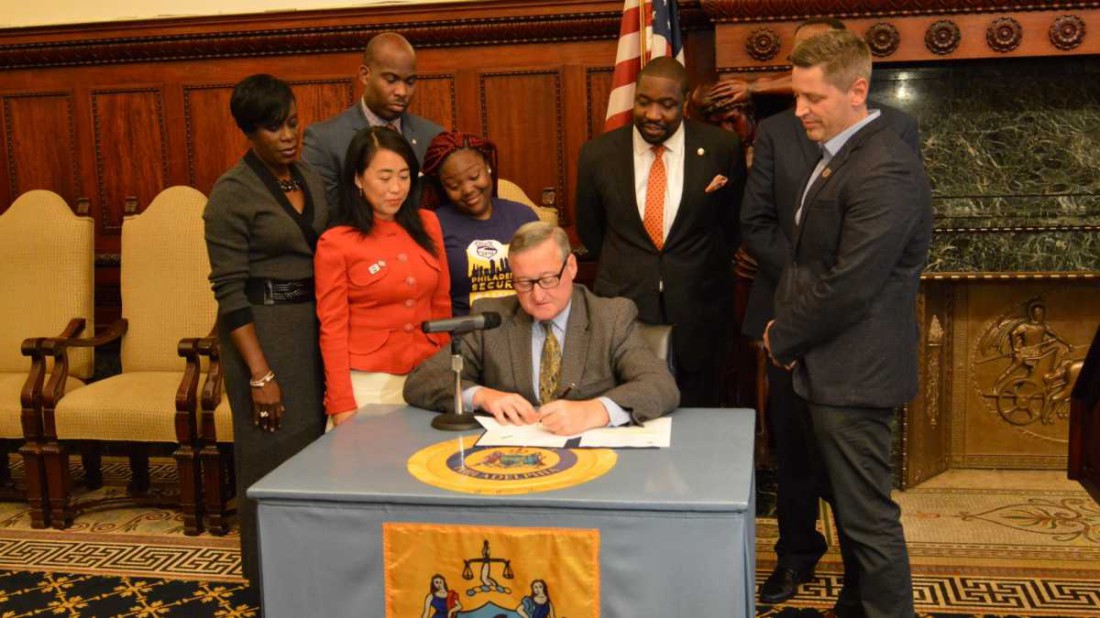Rising Wages – The Expansion of Philadelphia’s Prevailing Wage Ordinance
Insights
11.04.16
On Thursday, October 27th Philadelphia Mayor Jim Kenney signed into law legislation that expands the scope of the city’s prevailing wage ordinance to encompass service employees at universities, hospitals and other businesses that receive government funds.  The legislations, which was unanimously approved by the Philadelphia City Council, goes into effect immediately. Philadelphia’s prevailing wage ordinance was first passed in the 1950s, but in recent years has been expanded to cover more workers in the city. In substance, the ordinance requires employers to pay employees in the city covered by the ordinance a prevailing wage which, as the city explains, “is a rate of pay determined by the U.S. Department of Labor based upon the particular geographic area for a given class of labor and type of project.” A prevailing wage, as defined by the law, is typically higher than the wages that an employer would otherwise pay and, in some instances, is tied to wage rates negotiated by unions. Both before and after the expansion of the ordinance was signed into law, Mayor Kenney and members of City Council issued statements making it clear that the change to the ordinance was intended to raise the wages for thousands of people working in Philadelphia.
The legislations, which was unanimously approved by the Philadelphia City Council, goes into effect immediately. Philadelphia’s prevailing wage ordinance was first passed in the 1950s, but in recent years has been expanded to cover more workers in the city. In substance, the ordinance requires employers to pay employees in the city covered by the ordinance a prevailing wage which, as the city explains, “is a rate of pay determined by the U.S. Department of Labor based upon the particular geographic area for a given class of labor and type of project.” A prevailing wage, as defined by the law, is typically higher than the wages that an employer would otherwise pay and, in some instances, is tied to wage rates negotiated by unions. Both before and after the expansion of the ordinance was signed into law, Mayor Kenney and members of City Council issued statements making it clear that the change to the ordinance was intended to raise the wages for thousands of people working in Philadelphia.
In the short-term, employers in Philadelphia that receive government funds need to act immediately to ensure that they are complying with the city’s now expanded prevailing wage ordinance. Unlike many other statutory and regulatory changes where employers are provided time to comply with the changes before they go into effect, the expansion of the city’s prevailing wage ordinance goes into effect immediately. If an employer fails to comply with the prevailing wage ordinance, the city is authorized to withhold any sums that may otherwise be due to the employer which the city “believes is appropriate to insure compliance” with the prevailing wage ordinance. In short, the penalties for failing to comply with the prevailing wage ordinance are subjective and can be somewhat severe.
From a broader perspective, the expansion of the city’s prevailing wage ordinance is part of a consistent legislative trend, across all levels of government, to raise wages. Many states, cities and municipalities have already passed legislation raising the minimum wage above the federally mandated $7.25 an hour. Likewise, The Department of Labor’s new overtime regulations, which could raise wages for millions of workers across the country, are set to go into effect on December 1, 2016. Employers in and outside of Philadelphia need to be prepared for and should expect to see wages increase, through legislative activity at the federal, state and local levels of government, in the coming weeks, months and years.